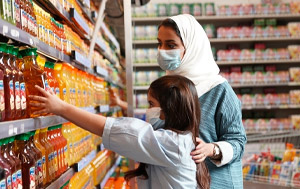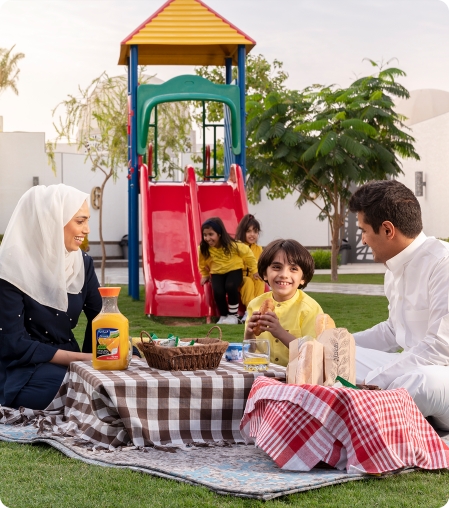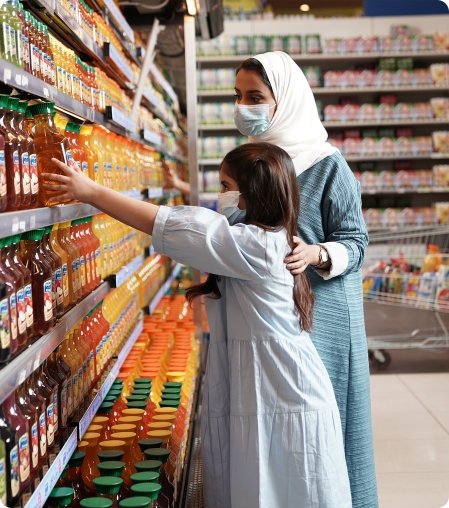Our sustainability performance
| 2018 | 2019 | 2020 | 2021 |
| Number of incidents of non-compliance with environmental laws and regulations | 0 | 0 | 0 | 0 |
Our sustainability performance
| 2018 | 2019 | 2020 | 2021 |
Number of incidents of non-compliance concerning product information and labeling |
0 |
0 |
0 |
0 |
Number of incidents of non-compliance with regulations and/or voluntary codes concerning marketing communications |
0 |
0 |
0 |
0 |
Percentage of significant product categories covered by and assessed for compliance with product information and labeling procedures (%) |
100% |
100% |
100% |
100% |
| Number of employee lost time injuries | 23 | 15 | 32 | 8 |
| Contractor lost-time injuries | 0 | 0 | 0 | 0 |
| Employee lost-time injury rate (per 1 Million man-hours) | 9.48 | 8.68 | 12.55 | 7.7 |
| Contractor lost-time injury rate (per 1 Million man-hours) | 0 | 0 | 0 | 0 |
| Hours of employee health and safety training | 507 | 883 | 318 | 391 |
| Hours of contractor health and safety training | 50 | 100 | 57 | 0 |
| Average hours of health and safety training per employee | 0.8 | 1.1 | 0.4 | 0.37 |
| Average hours of health and safety training per contractor | 1.7 | 1.7 | 0.3 | 0.0 |
| Employee absenteeism rate (%) | 1.7 | 1.7 | 0.3 | 1% |
| Number of employees | 837 | 798 | 877 | 1065 |
| Male employees | 816 | 775 | 854 | 1039 |
| Female employees | 21 | 23 | 23 | 26 |
| Full time, male employees | 816 | 775 | 854 | 962 |
| Full time, female employees | 21 | 23 | 23 | 26 |
| Part time, male employees | 0 | 0 | 0 | 0 |
| Part time, female employees | 0 | 0 | 0 | 0 |
| Senior management employees | 22 | 15 | 15 | 16 |
| Middle management employees | 99 | 14 | 28 | 28 |
| Non-management employees | 716 | 769 | 834 | 944 |
| New employee hires | 14 | 19 | 27 | 252 |
| New employee hires, age 18-30 | 9 | 14 | 21 | 188 |
| 64.3% | 73.7% | 77.8% | 74.6% | |
| New employee hires, age 31-50 | 5 | 5 | 6 | 64 |
| 35.7% | 26.3% | 22.2% | 25.4% | |
| New employee hires, age 51+ | 0 | 0 | 0 | 0 |
| 0% | 0% | 0% | 0% | |
| New employee hires, male | 14 | 14 | 26 | 314 |
| 100% | 73.7% | 96.3% | 124.6% | |
| New employee hires, female | 0 | 0 | 1 | 3 |
| 0% | 0% | 4% | 1% | |
| Voluntary employee turnover | 177 | 9 | 3 | 55 |
| 21.1% | 1.1% | 0.3% | 5.2% | |
| Voluntary employee turnover, age 18-30 | 134 | 3 | 3 | 52 |
| 75.7% | 33.3% | 100.0% | 94.5% | |
| Voluntary employee turnover, age 31-50 | 40 | 5 | 0 | 3 |
| 22.6% | 55.6% | 0.0% | 5.5% | |
| Voluntary employee turnover, age 51+ | 176 | 1 | 0 | 0 |
| 99.4% | 11.1% | 0.0% | 0.0% | |
| Voluntary employee turnover, male | 176 | 9 | 2 | 54 |
| 99.4% | 100% | 66.7% | 98.2% | |
| Voluntary employee turnover, female | 1 | 0 | 1 | 1 |
| 0.6% | 0% | 33.3% | 1.8% | |
| Female employment rate (%) | 2.6% | 3.0% | 2.7% | 2.7% |
| Women in senior management | 2 | 1 | 1 | 0 |
| 9.1% | 6.7% | 6.7% | 0.0% | |
| Women in middle management | 8 | 4 | 7 | 6 |
| 8.1% | 28.6% | 25.0% | 21.4% | |
| Women in non-management positions | 11 | 17 | 15 | 17 |
| 1.5% | 2.2% | 1.8% | 1.8% | |
| Board seats occupied by women | 0 | 1 | 2 | 2 |
| 0% | 12.5% | 25.0% | 25.0% | |
| Number of employees with a disability | 17 | 17 | 15 | 15 |
| Number of formal incidents of discrimination reported | 0 | 0 | 0 | 0 |
| Percentage of working time lost due to industrial disputes, strikes and/or lock-outs (%) | <1% | 0 | 0 | 0 |
| Number of female employees entitled to maternity leave | 15 | 11 | 15 | 10 |
| Number of female employees that took parental leave | 2 | 0 | 0 | 0 |
| Number of female employees that returned to work in the reporting period after parental leave ended | 2 | 0 | 0 | 0 |
| Number of female employees that returned to work after parental leave ended that were still employed 12 months after their return to work | 2 | 0 | 0 | 0 |
| Female employee return to work rate of employees that took parental leave (%) | 100% | N/A | 0% | 0% |
| Female employee retention rate of employees that took parental leave (%) | 100% | N/A | 0% | 0% |
| Total hours of training provided | 1600 | 4956 | 306325 | 9584 |
| Average hours of training per employee | 1.91 | 6.21 | 349.29 | 9.00 |
| Percentage of employees receiving regular performance and career development reviews (%) | NIA | NIA | 100% | 100% |
Total CSR spending (SAR) |
40,280 |
53,593 |
279,635 |
13,719 |
Number of school and university visitors hosted |
N/A |
438 |
0 |
0 |
Product donations (Number of servings) |
NIA |
7,583 |
NIA |
1,806 |
Our sustainability performance
| 2018 | 2019 | 2020 | 2021 |
| Water withdrawal (m3) | 164,310 | 175,272 | 201,897 | 372,250 |
| Water recycling and reuse (m3) | 107,800 | 120,416 | 154,171 | 14,820 |
| Percentage of water recycled and/or reused (%) | 66% | 69% | 76% | 4% |
| Total water consumption (m3) | 272,110 | 295,688 | 356,068 | 387,070 |
| Water discharge (m3) | 122,987 | 135,096 | 167,594 | 184,515 |
| Manufacturing water intensity (m3/metric ton of finished product) | 6 | 6 | 6 | 9 |
| Percentage of card board coming from recycled materials used as an input material (%) | NIA | NIA | NIA | N/A |
| Plastics removed from packaging (tons) | NIA | NIA | NIA | N/A |
| Paper removed from packaging (tons) | NIA | NIA | NIA | N/A |
| Total packaging removed from the consumer waste stream (tons) | NIA | NIA | NIA | N/A |
| Direct stationary energy usage (in thousands kWh) | 8,527 | 9,624 | 9,564 | 12,331 |
| Indirect stationary energy usage (in thousands kWh) | 9,439 | 9,349 | 10,120 | 12,985 |
| Total stationary energy usage (direct and indirect, in thousands kWh) | 17,966 | 18,972 | 19,684 | 25,316 |
| Total solar energy usage (in thousand kWh) | 0 | 298 | 735 | 167 |
| Percentage of electricity consumption from solar (%) | 0 | 0 | 0 | 1% |
| Almarai owned refrigerators in stores (in thousands kWh) | NIA | NIA | NIA | N/A |
| Manufacturing energy intensity (kWh/metric ton of finished product) | 535 | 575 | 486 | 456 |
| Total vehicle fuel consumption (thousands of liters) | 1,983 | 215 | 3,081 | 950 |
| Scope 1 (direct) emissions (metric tons CO2e) | 5,744 | 2,859 | 6,862 | 5,949 |
| Scope 2 (indirect) emissions (metric tons CO2e) | 7,344 | 7,273 | 7,874 | 10,102 |
| Scope 3 emissions from Almarai refrigerators in stores (metric tons CO2e) | NIA | NIA | NIA | NIA |
| Total emissions (metric tons CO2e) | 13,088 | 10,132 | 14,736 | 16,051 |
| Manufacturing emissions intensity (metric tons CO2e/metric ton of finished product) | 0 | 0 | 0 | 0 |
| Emissions from refrigerant leakage and replacement (metric tons CO2e) | 20 | NIA | NIA | NIA |
| Food waste resold for animal feed (Store returns and operational) (metric tons) | 0 | 0 | 0 | 0 |
| Recycled waste (metric tons) | 0 | 0 | 0 | 0 |
| Total waste generated (metric tons) | 4,242 | 3,508 | 4,214 | 250 |
| Waste sent to landfill (metric tons) | 4,242 | 3,508 | 4,214 | 250 |
| Percentage of waste sent to landfill (%) | 100% | 100% | 100% | 100% |
Our sustainability performance
| 2018 | 2019 | 2020 | 2021 |
| Percentage of production volume manufactured in sites certified by an independent third party according to internationally recognized food safety management system standard (%) | 100% | 100% | 100% | 100% |
| Number of incidents of non-compliance with regulations and/or voluntary codes concerning the health and safety impacts of products and services | 0 | 0 | 0 | 0 |
| Number of recalls | 0 | 0 | 0 | 0 |
| Percentage of significant product categories covered by and assessed for compliance with product information and labeling procedures (%) | 100% | 100% | 100% | 100% |
| Percentage of products which health and safety impacts are assessed for improvement (%) | 100% | 100% | 100% | 100% |
| Total number of manufacturing plants | 1 | 1 | 1 | 1 |
| Number of Food Safety System Certification (FSSC) 22000 certified plants | 0 | 0 | 0 | 1 |
| Number of Global Food Safety Initiative (GFSI) certified plants | 0 | 0 | 0 | 1 |
| Percentage of plants that are GFSI certified (%) | 0% | 0% | 0% | 100% |
| Number of food safety and quality assurance employees | 2 | 2 | 3 | 22 |
| Number of cows | 2,373 | 2,841 | 3,050 | 3,200 |
| Number of chickens processed | N/A | N/A | N/A | N/A |
| Number of incidents of non-compliance with laws regulations, and adherence with voluntary standards related to transportation, handling, and slaughter practices for live terrestrial and aquatic mammals | 0 | 0 | 0 | 0 |
| Percentage of cows in enclosed housing with resting areas (%) | 100% | 100% | NIA | N/A |
| Percentage of chickens in enclosed cage free housing (%) | N/A | N/A | N/A | N/A |
| Percentage of locally based suppliers engaged (%) | 91% | 97% | 95% | 93% |
| Percentage of spending on locally based suppliers (%) | 57% | 88% | 86% | 90% |
| Total number of suppliers engaged | 349 | 330 | 351 | 700 |
| Total number of local suppliers engaged | 319 | 320 | 334 | 650 |
| Percentage of purchased volume from suppliers compliant with company's sourcing policy | 100% | 100% | 100% | 100% |
| Percentage of purchased volume which is verified as being in accordance with credible, internationally recognized responsible production standards | NIA | 40% | NIA | 100% |
| New suppliers that were screened using social and/or environmental criteria | 0 | 3 | 0 | 3 |
| Number of negative social and/or environmental impacts in the supply chain and actions taken | NIA | NIA | NIA | 0 |



